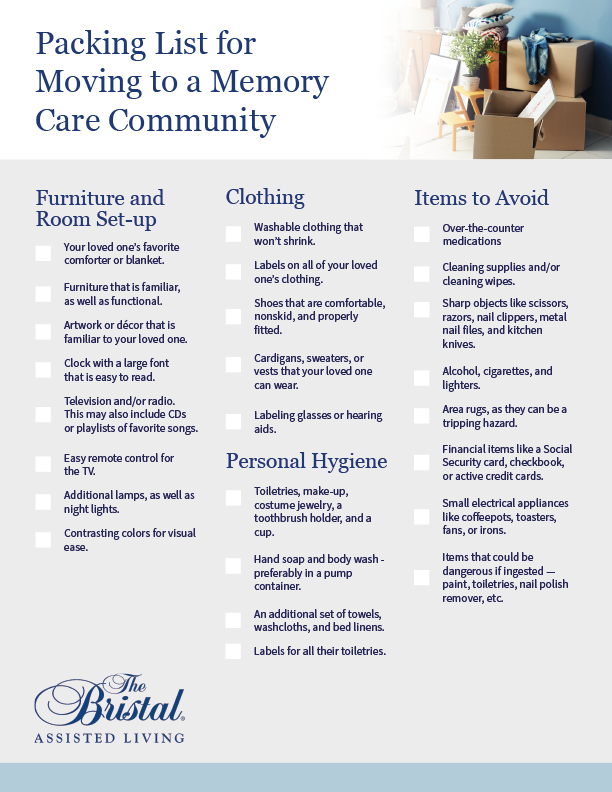Enhancing Comfort and Security With Alzheimers Care Charlotte Solutions
Wiki Article
Creating a Safe and Encouraging Environment for Alzheimer's Treatment
The development of a safe and encouraging atmosphere for people with Alzheimer's is vital in enhancing their high quality of life. This involves not just physical adaptations within the home, such as lessening risks and including familiar components, but likewise the implementation of organized regimens and significant tasks that satisfy their cognitive requirements. Understanding the psychological and emotional measurements of treatment can significantly affect their feeling of security and connection. Checking out these complex approaches can reveal important understandings right into effective caregiving methods that might change the everyday experiences of both caregivers and clients.Comprehending Alzheimer's Requirements
Often, individuals with Alzheimer's illness display a series of requirements that need tailored methods to care. As the condition progresses, cognitive decrease shows up in numerous means, affecting memory, reasoning, and even the ability to perform daily tasks. Caretakers should acknowledge these developing needs to give ideal assistance and guarantee a better of life for those influenced.One essential element of recognizing Alzheimer's demands is acknowledging the significance of routine and knowledge. People typically find convenience in well established patterns, which can decrease anxiety and complication. Caregivers need to aim to create organized everyday schedules that include significant tasks lined up with the person's passions and abilities.
Additionally, reliable communication is extremely important. Individuals with Alzheimer's might struggle to share themselves or comprehend complex language. Caretakers ought to use easy, clear language, usage non-verbal cues, and technique active paying attention to cultivate understanding and connection.
Caretakers should motivate interaction in area tasks or family events, promoting a feeling of belonging and objective. Recognizing these diverse needs is vital for developing an encouraging care environment.
Designing a Safe Home
Producing a safe home for people with Alzheimer's disease is essential to advertising and reducing threats self-reliance. Ensure that paths are clear and well-lit, as proper lighting reduces disorientation and boosts movement.
Including adaptive functions is additionally critical. Install grab bars in washrooms and near stairways, and take into consideration utilizing non-slip floor coverings in wet locations. Additionally, using contrasting colors for wall surfaces and floors can help in identifying spaces, assisting to mitigate confusion.
Knowledge is necessary for people with Alzheimer's. Personalizing the atmosphere with acquainted things and photographs can strengthen a feeling of belonging and safety and security - Alzheimers Care Charlotte. It is also beneficial to have a marked location for daily tasks, such as reading or crafting, which can offer framework to their day
Last but not least, executing a safe exterior space enables for risk-free expedition while getting in touch with nature. By attentively designing the home atmosphere, caregivers can dramatically enhance the lifestyle for individuals dealing with Alzheimer's illness.
Enhancing Interaction Abilities

Non-verbal communication, consisting of faces, gestures, and touch, plays an essential role in sharing compassion and understanding. Maintaining eye contact and a tranquil temperament can boost the comfort level of the person, promoting a feeling of safety and security.
Additionally, it is necessary to practice energetic listening. This includes being fully existing, showing perseverance, and enabling the person to share themselves without disruption. Repetition might be required; caretakers must be prepared to revisit subjects or questions, as people with Alzheimer's may fight with memory recall.
Furthermore, using aesthetic help or hints, such as photographs or familiar things, can assist in recognition and interaction. Ultimately, improving communication skills has to do with developing trust fund and producing a setting where individuals really feel listened to, valued, and comprehended, therefore enriching their lifestyle.
Encouraging Social Interaction
Cultivating meaningful social communications can greatly improve the health of individuals with Alzheimer's illness. Involving with others not just helps battle sensations of isolation however additionally stimulates cognitive function and emotional wellness. Structured social tasks, such as group arts, crafts and video games, or music treatment, develop opportunities for locals to get in touch with peers and caretakers, which can lead to boosted state of mind and lowered anxiety.Creating an inviting atmosphere that motivates socializing is crucial. This can be achieved by arranging communal areas that assist in interaction, such as relaxing seating locations or task spaces. In addition, including culturally pertinent and familiar activities can motivate and stimulate memories engagement, permitting people with Alzheimer's to really feel even more connected to their past experiences.
Additionally, caregivers ought to be trained to recognize and promote social involvement amongst homeowners. Straightforward motions, such as starting conversation or helping with small seminar, can aid people feel valued and included. Frequently arranged gatherings should correspond yet flexible, accommodating differing levels of ability and interest. By focusing on social interaction, we can considerably enrich the lives of those coping with Alzheimer's, promoting a sense of area and belonging.
Supporting Caretaker Well-being

To sustain caretakers, organizations ought to use normal training and educational resources to improve their understanding of Alzheimer's condition and caregiving strategies. Providing access to break treatment solutions permits caretakers to take essential breaks, minimizing tension and tiredness - Alzheimers Care Charlotte. In addition, cultivating an area through support system can help with emotional sharing and the exchange of useful recommendations amongst caretakers, producing a network of shared assistance
Psychological health and wellness sources, such as therapy solutions, can likewise be crucial in resolving the psychological toll caregiving can take. By focusing on caretaker wellness, we produce a more sustainable caregiving environment that not only profits the caretakers themselves yet likewise improves the general quality of care received by people with Alzheimer's. Inevitably, sustaining caregivers is a vital element in fostering a reliable and caring care setting.
Verdict
To conclude, the development of a risk-free and supportive atmosphere for individuals with Alzheimer's is necessary to boosting their high quality of life. By prioritizing safety via thoughtful style, fostering psychological wellness with familiar elements, and advertising interaction via structured regimens, caregivers can dramatically affect the overall experience of those influenced by this condition. Sustaining caregiver well-being is important, as it ultimately contributes to an extra caring and reliable care atmosphere.Repetition may be essential; caregivers need to be prepared to revisit subjects or questions, as people with Alzheimer's may battle with memory recall.

Report this wiki page